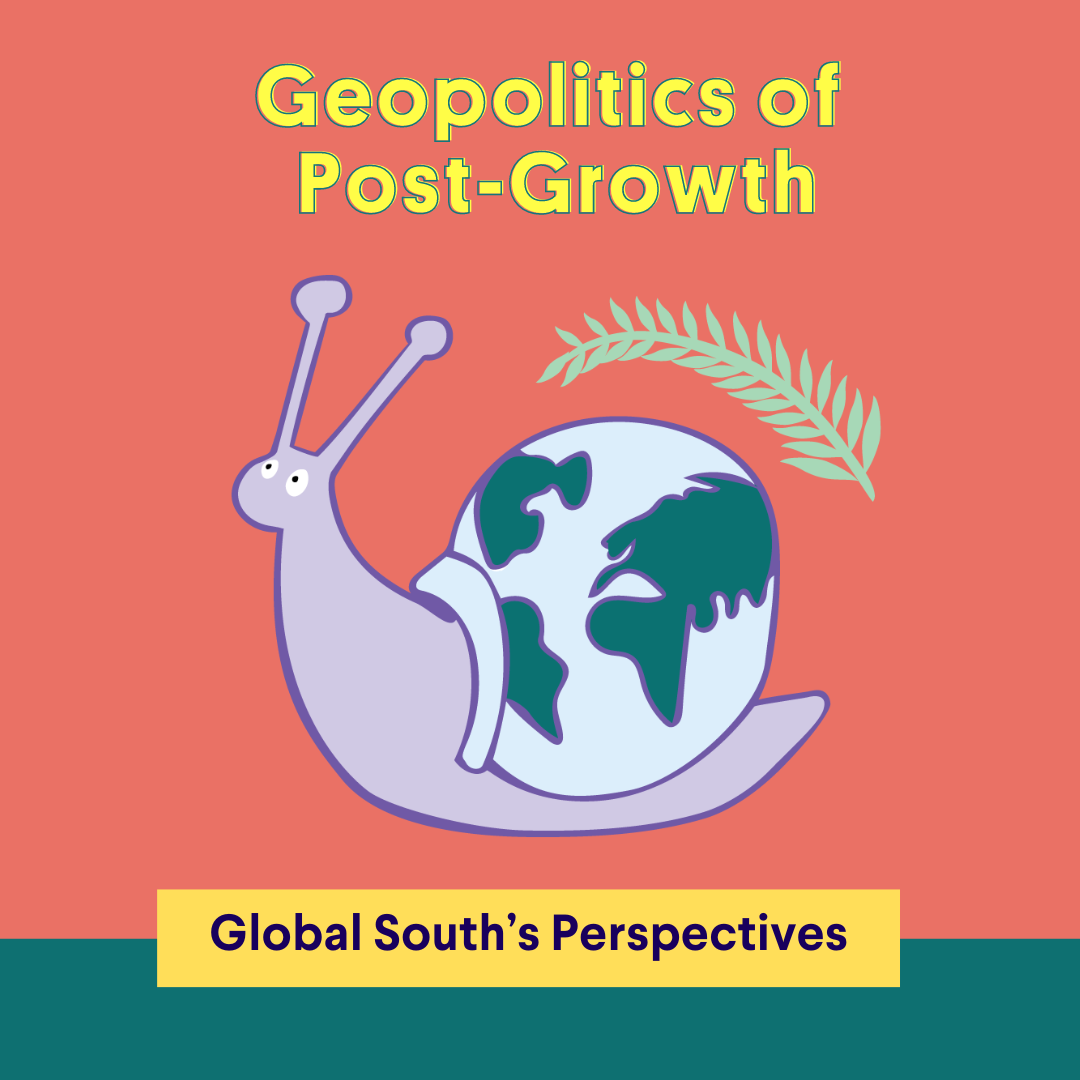
- This event has passed.
Geopolitics of Degrowth in a Conflicted Europe – Global South’s Perspectives
2023

Post-growth ideas attract many green thinkers, activists and politicians in Bulgaria and Europe. But what would a farewell to economic growth mean for the EU’s position in the world and its relations with the Global South? Which role would information technology play in this debate? Join us online for an online workshop targeted at activists, experts and opinion leaders, in partnership with the Association for Progressive Communications.
About the event
Green policies that respect planetary boundaries and allow the Global South to develop seem incompatible with unlimited economic growth within the EU. We need a realistic scenario for a future in which we consume more sparingly but live better together.
Could a post-growth EU that considerably reduces its ecological footprint with the purpose of freeing up natural resources find partners in the Global South? What should these partnerships entail?
To tackle this issue, the Green European Foundation with the support of BlueLink is organising a webinar focusing on the Global South. Participants will have the opportunity to review and reflect upon the outcomes from expert meetings, research and interviews, held across Europe during 2023.
We invite researchers, activists and policy makers – particularly from the Global South – with an interest in green policies and geopolitics to present perspectives, experiences, analytical or activity reports and to engage in a discussion around the following questions:
- How would it be possible to optimize the possibilities that degrowth offers, including for democratic flourishing and a safer Europe and world?
- Could a post-growth EU considerably reduce its environmental footprint with the express purpose of freeing up natural resources for the Global South?
- Can the EU hope for strategic partnerships with (democratic) Global South countries, which are vital for greater security and legitimacy?
- Could a post-growth EU still make a larger contribution to poverty reduction, global public goods, tax justice, legal migration routes, international climate finance, and compensation for climate loss and damage?
- Could the older EU members come to terms with their colonial pasts, and on what conditions? How important is this for the Global South?
- Will exports from Global South suffer if a post-growth EU reduces its overconsumption of global resources?
- How much EU’s partnership with the Global South depend on technology transfer?
- What role of technology beyond trade, development, and climate: is it intertwined with geopolitics?
Not every question has a definitive answer and we promote creativity, analytical thinking, and a fresh approaches to the challenge.
Project Background
This event is part of GEF’s project Geopolitics of a Post-Growth Europe, which explores the tensions between degrowth/post-growth and geopolitics. The project aims to ignite a conversation between critics of economic growth and progressive thinkers on foreign and security policy, who now often operate in separate circuits. It aims to find solutions beyond naïve anti-militarism and convenient belief in green growth. Find out more about the project and its findings at geopoliticspostgrowth.eu.
Practicalities
This GEF e-workshop will be held in Zoom by BlueLInk..
Date and time: December 11, 2023 (14:00 UCT / 15:00 CET / 16:00 EET)
Language: English
Registration: Open to all interested participants, but please register in advance via this link. Please use the ‘Questions and Comments’ field to specify your scope of interest or proposed intervention. You will receive a confirmation email after registration.
This event is organized by the Green European Foundation with the support of BlueLink. It will take place online, in partnership with the Association for Progressive Commnunications and its members.



